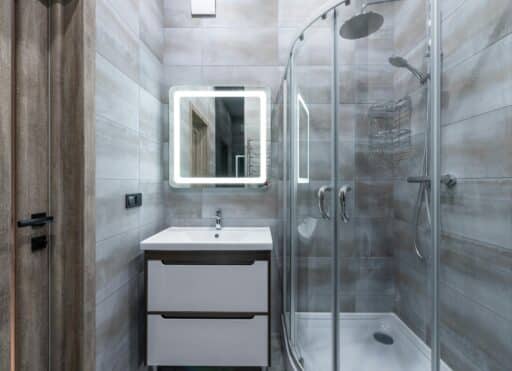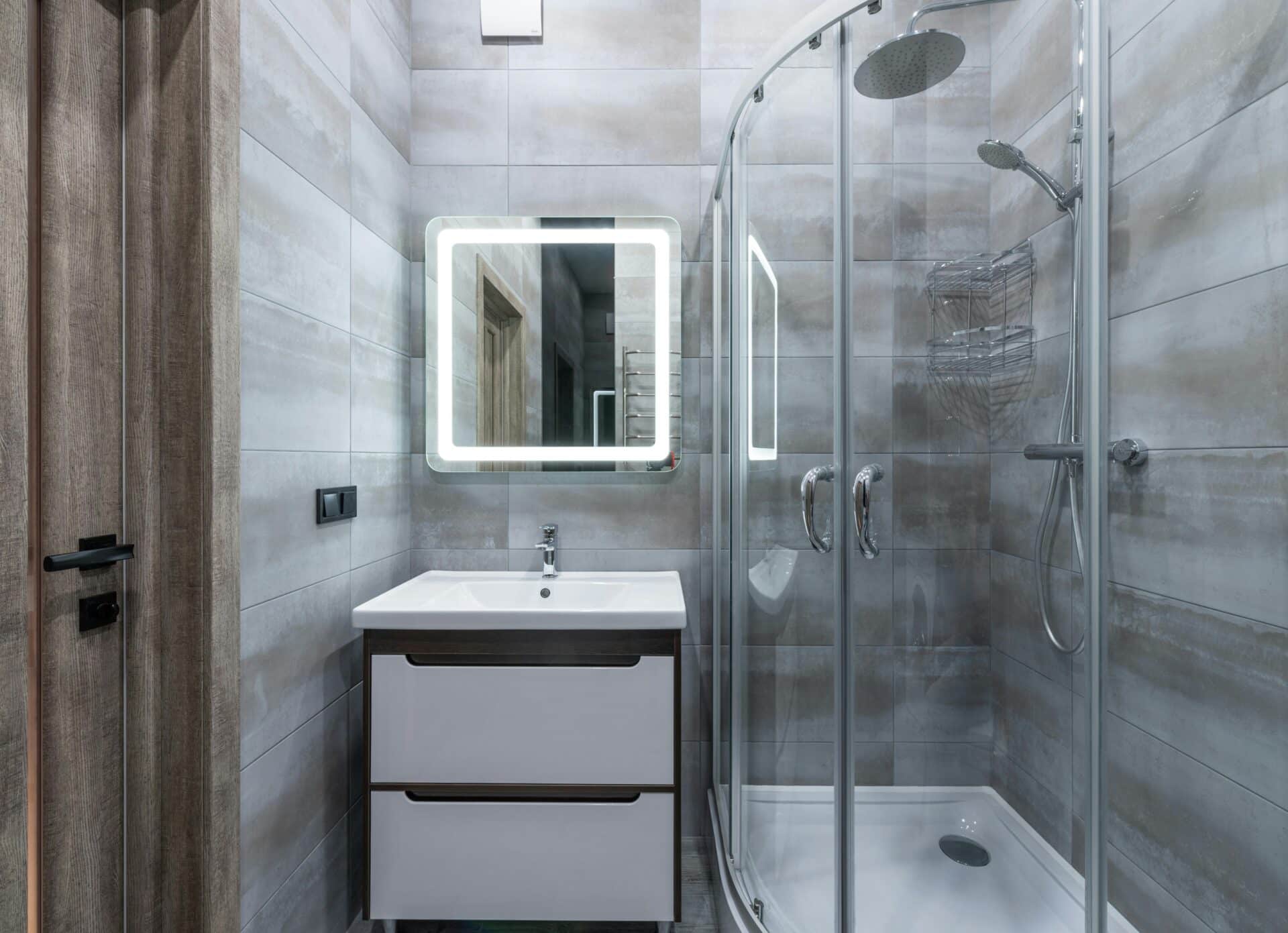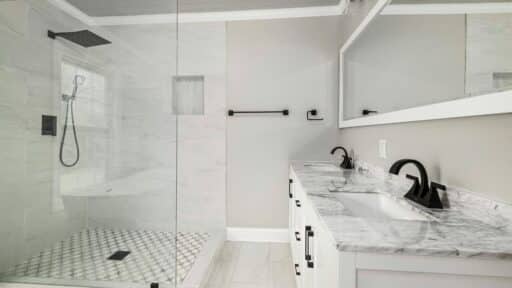When renovating a bathroom, every detail matters. One of the most impactful choices you’ll make is selecting the right shower door. The decision between frameless and framed options can drastically affect the aesthetic, functionality, and maintenance of your space. Understanding the key differences can help you make an informed choice that complements your vision while meeting practical needs.
Understanding the Basics: Frameless vs. Framed
Frameless shower doors are designed without a bulky frame. This minimalist approach offers a sleek, modern look that immediately elevates a bathroom’s feel. These doors are typically made of thick tempered glass, which adds to their durability and safety.
On the other hand, framed shower doors have a sturdy metal frame that surrounds the glass. This additional structure provides support and may also be a cost-effective solution for certain designs. Both options come with their unique advantages and challenges, and understanding these can help you determine which might be the best fit for your home.
Aesthetic Appeal
Frameless Shower Doors
One of the strongest arguments for frameless shower doors lies in their aesthetic appeal. They provide an uninterrupted view of your tiled wall or shower space, allowing for a seamless transition between the shower and the rest of the bathroom. The clean lines create a sophisticated look, which works especially well in contemporary or minimalist-styled bathrooms.
Imagine stepping into your shower and feeling as though you are part of the entire room rather than isolated by bulky frames. The transparency of a frameless design also allows for more light to flow freely, making smaller bathrooms seem larger and airier.
Framed Shower Doors
Framed options do not sacrifice style entirely. They can still look elegant, particularly in more traditional or eclectic bathrooms where ornate fixtures and vibrant tiles can complement the framework. The frame can be customised in various finishes—chrome, brushed nickel, or bronze—providing a degree of versatility.
While they may not have quite the same modern edge as their frameless counterparts, framed doors offer a more classic feel. This might resonate with homeowners looking to maintain a cohesive historical aesthetic.
Ultimately, the decision should enhance the overall look and feel of your bathroom while offering the functionality you need. If you’d like to explore specific designs to suit your space, check out this full selection here.
Durability and Maintenance
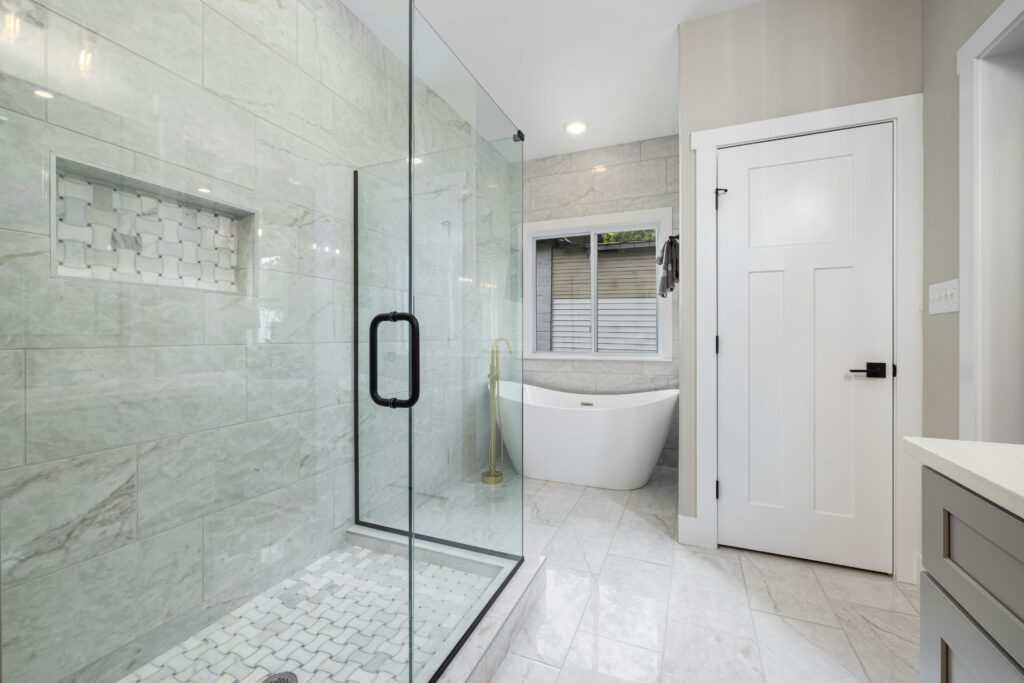
Frameless
Although frameless doors appear delicate due to the absence of a visible frame, they are actually quite durable. The tempered glass used in these designs is thick and designed to withstand impact, making them a sturdy choice for everyday use. However, frameless doors can be more susceptible to leaks, so it’s crucial to ensure proper installation by professionals.
Maintenance might also differ; without frames, dirt and grime have fewer crevices to hide but can make glass cleaning more challenging. Regular cleaning with appropriate glass cleaners is essential to prevent soap scum buildup.
Framed
Framed shower doors offer the practical advantage of additional structure, which can provide a more streamlined installation. They can effectively contain water, lessening the chances of leaks. However, the frame can trap moisture and soap scum, requiring more frequent cleaning to maintain appearance and prevent mildew.
Framed doors can also be a more budget-friendly option, with the additional support reducing construction complexities during installation. If you’re considering altering the structure of your bathroom, a framed shower door might serve as a more straightforward choice.
Space Considerations
Frameless
If you have a smaller bathroom, frameless doors are often the best choice. The design aids in making the space feel larger, as mentioned earlier. Plus, frameless doors can be custom-fitted to nearly any space, allowing for unique configurations that might not be possible with a standard framed option.
Framed
Conversely, framed shower doors can work well in larger bathrooms, providing a distinct separation between the shower area and the rest of the space. The structural integrity of the frame adds to the overall feel of spaciousness without compromising on functionality.
Cost Implications
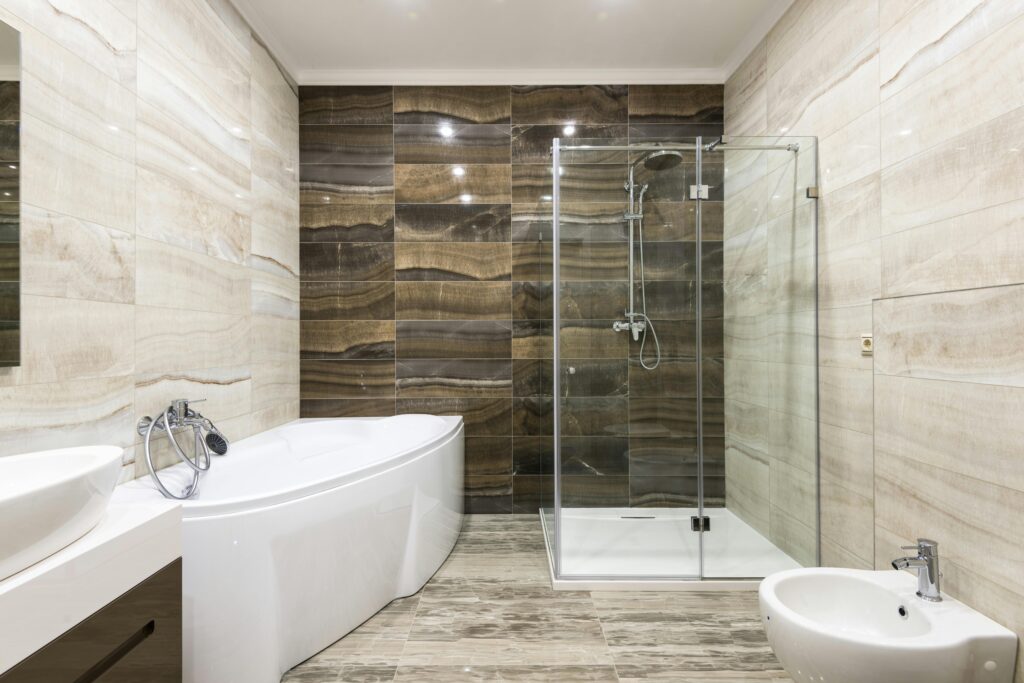
While both options have their merits, cost plays a crucial role in decision-making. Frameless shower doors generally come at a higher price point due to the thickness of the glass and the engineering required for proper installation. If you’re willing to invest for the sake of aesthetics and modern design, this option may be worth it.
For those working with a tighter budget, framed doors can provide a highly functional solution without breaking the bank. The range of styles and finishes also allows for personalisation without the premium typically associated with custom designs.
Making Your Selection
Choosing between frameless and framed shower doors boils down to personal preferences and practical considerations. Don’t forget to consider other factors, too:
• Bathroom Size: The dimensions of your bathroom can significantly impact the effectiveness of either option.
• Design Style: Your overall aesthetic will guide your choice. A modern design calls for frameless, while a traditional style may welcome framed doors.
• Budget: Understand how much you’re willing to invest and the long-term maintenance that might come with your choice.
In summary, whether you lean towards the make of frameless shower doors for their elegant efficiency or opt for framed solutions that boast classic appeal, each choice offers uniqueness and opportunity. Take your time weighing the options; after all, this is about creating a personalised retreat that meets your aesthetic desires and functional requirements.

